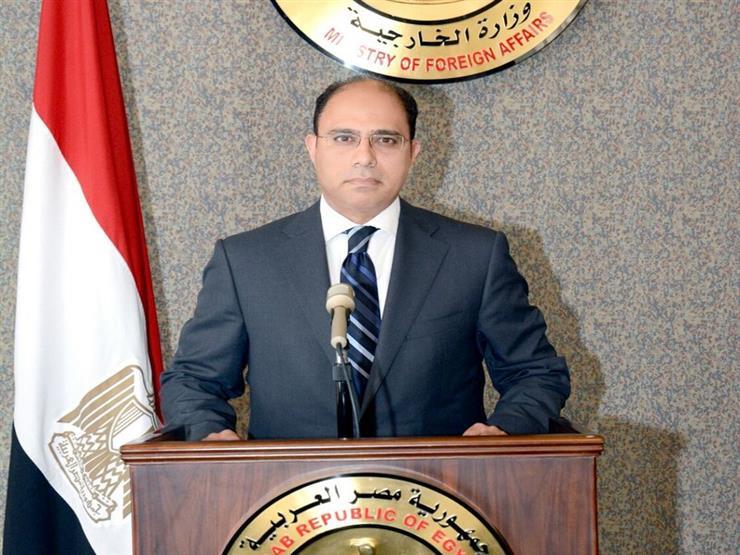Hopes for concluding the United Nations Climate Summit (COP28) on time diminished on Tuesday, while countries are still far from major issues, most notably agreeing on what to do about fossil fuels, which cause dangerous global warming.
The conference entered additional time on Tuesday, as countries engaged in shuttle diplomacy in an effort to reach a new draft agreement and try to heal the rift.
The conference president, Emirati Sultan Al Jaber, is holding consultations with all parties on the thirteenth day of the conference, which is supposed to be the last, and he must formulate a new draft agreement that may be the final.
In the evening, representatives of several groups of countries (least developed countries, Latin American and Caribbean countries, Western countries…) were coming to Al Jaber’s office.
These consultations will continue until three o’clock in the morning local time (Tuesday 23:00 GMT), before the possible publication of a new draft agreement, which will be presented in a public session to receive the positions of all parties.
A spokesman for Al-Jaber told AFP that the COP28 president is “determined to find a text formula that enjoys the support of all parties.”
Several countries criticized the latest draft as being very weak, because it neglected the “phasing out” of fossil fuels.
Majed Al Suwaidi, Director-General of COP28, said that the draft, which was issued on Monday after two weeks of discussions, was aimed at attracting the parties to interact and “stimulate talks” in an effort to reach a final agreement by the end of the summit.
He added to reporters, “When we issued the first draft of the text, the parties concerned reacted quickly and began to come up with these red lines.”
Negotiators from nearly 200 countries are trying to agree on a global action plan to limit climate change quickly enough to avoid more catastrophic floods, deadly heat and irreversible changes to the world’s ecosystems.
Temperatures are close to breaking the record for the warmest year, putting human health at risk.
Al Suwaidi said that the COP28 presidency, held by the United Arab Emirates, aims to reach “historic” results, including fossil fuels, but this matter is up to the participating countries.
Agreements must be approved at UN climate summits by consensus, and each country must then implement the agreement through national policies and investments.
“At this COP conference, we are trying to do something that has never been done before, something historic,” Al-Suwaidi said. “Part of this is including fossil fuels in the text. If we can, it will be historic.”
Germany’s climate envoy Jennifer Morgan said the talks had entered a “very critical stage.”
“There is a lot of shuttle diplomacy going on,” she added on the social media platform X, referring to quick meetings between countries to search for a compromise.
The draft, which was issued on Monday, sparked widespread controversy that continued throughout the night until early Tuesday, and the text proposed eight options that countries “could” take to reduce emissions.
One of those options was to “reduce the consumption and production of fossil fuels, in a fair, orderly and equitable manner in order to achieve net zero by, before or around 2050”.
This will be the first time in history that the United Nations Climate Summit refers to reducing the use of all types of “fossil fuels.”
But the move fell short of the “phasing out” of coal, oil and gas that many countries have called for or the focus on reducing their use this decade, which scientists say is necessary to avoid escalating climate change.
The negotiators were waiting for a new text on Tuesday, when the conference was about to end. COP summits rarely end on schedule.
The draft has been criticized as too weak by participants such as Australia, Canada, Chile, the European Union, Norway and the United States, among the group of 100 countries demanding a strict commitment to the world getting rid of coal, oil and gas.
Greenhouse gas emissions resulting from burning fossil fuels are the main cause of climate change. Despite the rapid growth of renewable energy, fossil fuels still produce about 80 percent of the world’s energy.
It was not clear whether China, the world’s largest emitter of greenhouse gases, supported the draft resolution on Monday. Xie Zhenhua, a veteran Chinese climate change envoy, said progress had been made in the talks, but it was “hard to say” whether an agreement could be reached by the end of the day Tuesday.
Sources familiar with the discussions said that summit head Sultan Al Jaber faced pressure from Saudi Arabia, the de facto leader of the OPEC group, to drop any mention of fossil fuels from the text, which Al Jaber did not do.
The Saudi government did not respond to requests for comment on Tuesday. The Saudi representative at COP28 refused to comment on the text yesterday evening, Monday.
In a letter dated December 6, seen by Reuters, OPEC Secretary-General Haitham Al-Ghais urged members to reject any COP28 agreement targeting fossil fuels.
Negotiators and observers at the COP28 talks told Reuters that while Saudi Arabia was the strongest opponent, other OPEC and OPEC+ members, including Iran, Iraq and Russia, resisted attempts to include a phase-out of fossil fuels in the agreement.
#dawn…the #climate #summit #enters #additional #time #search #unanimous #decision
2023-12-12 19:00:50


